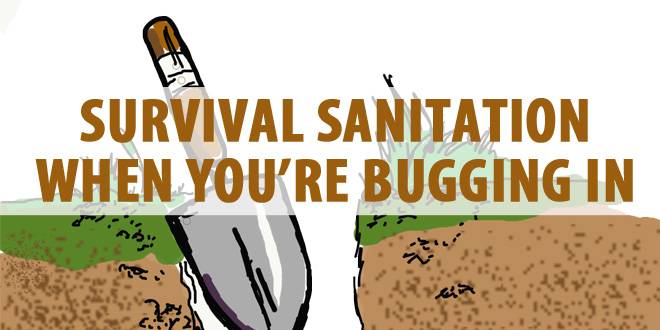
Photo : Survival Sullivan
Once last year, I had travelled to Mumbai on the train. When the railway made its way through slum areas I was wide-eyed at the extents human living could degrade to. Between the tin homes, piles of garbage had been collected. Dogs were searching for food among them. All the narrow lanes were dirty and from where I sat by the window I could look down and see plastics lying along the track. The people there were visibly thin, weak and decrepit. I kept wondering how these people live like this.
Sanitation is a very important part of human existence. It is a major factor on which health depends. Without sanitation, it is difficult to survive. Ilness would start burying its roots in us. The Harappan civilization is known to have been destroyed by collection of waste and unhygienic drainage system. I don’t know how much more or less worse it was then the sight in those slums mentioned above, but one thing is certain –It’s time we realize that lack of sanitation can ruin our lives. And we need to find ways to tackle them.
- Start early–
At what age you come across a topic makes a big difference. If a person keeps throwing banana covers out of bus and car windows until the age of 40, he is never likely to change. But if the issue of sanitation gets introduced to children when they are as young as 5 or 6, they will not see it as an external issue only reserved for speeches, essays and missions like ‘Swachcha Barat Abhiyan’ to which they have a total apathy. Instead they will link it to day-to-day life.
2. What about pets?–
For one reason I wish I didn’t have to say this. Like my parents, I too am a pet lover. We had our own pet dogs, while staying in the village. But since our move to the city, we haven’t domesticated any. In my opinion, pets in the cities create a problem for both owners and other people. For instance, in our own city walking on foot has become very difficult, especially after evening. Dogs have defecated everywhere. It’s true that many of these are street dogs. But with regard to those which are domesticated, it’s to be said that pets are better not kept in cities. But pet-lovers, while the decision is in your hand, remember that this kind of life is also not good for your beloved companions. They need free-spaces to run and play which they can never get here.
3. Proper sewerage–
If the original sewerage system of a given place is poor, then mere improvements in this regard can decrease diarrhea cases by about 30 to 60%. As per National Family Health Survey-3 (2005-2006) 52.8% households had better sanitation facilities while 41% still had no latrines within the house, among which 24.2% used public toilets and the rest, 16.8% defecated in the open. In stated such as Andhra Pradesh, Bangalore, Karnataka, Hyderabad, etc. half or more than half of the cities were found to have neiher sewerage systems nor running water. As we all know open defication is a major cause for diseases, the government must make it a point to see that as many houses as possible have laterines connected to a proper closed sewarage lines.
4. Wrong ways of garbage disposal–
A small pond very near to my place has turned almost black with disposal of garbage. It is choking with plastic bags, bins, rags and bottles. During the rainy season, it is a breeding ground for mosquitoes which is why diseases like dengue and malaria are on the rise here. Garbage heaped on the roads can attracts houseflies. The municipal corporations should take proper steps. Plastic garbage can be recycled while organic waste may be turned into compost. Not only will a productive activity take place, but also sanitation will be better maintained.
5. Cleaning of rivers–
In many villages of our country the rivers are the main source of water. They fish for fiood, drink water from them and irrigate their lands with this water. But use of rivers for disposal of garbage and chemical waste has led to their polluting. The water of many rivers like Ganga, Narmada, etc. have become very dirty and unfit for human consumption. Therefore, the government must set aside a certain amount for the cleaning of rivers and encourage people to keept them clean for themselves.
6. Use of media–
Media, these days is accessible to almost all the people throgh newspaper, radio, telivision, internet, etc. This could therefore play a major role in improving sanitation. Studies should be made on the state of sanitation in different parts of India and broadcasted on major channels. Reports should be published on this issue in newspapers. In this way, it will become a topic of national importance and more people will be drawn towards it.
7.Public meetings and cleanliness rallies
While government has a duty to look after sanitation, first and foremost are the citizens of our country. As is often said ‘there is strength in unity.’ Therefore ordinary people should rise up anf face the problem that lac of sanitation has caused. Public meetings, discussions and sppeches must be arranged. Ordinary people shold go on rallies and together clean their newighbourhoods, streeets and roads. As more people will sympathize with this issue, it will gain more streangth.
However, while writing this essay I am repeatedly reminded of the slums in Mumbai. For me sanitation will actually be implemented only when it reaches all these poor people and not just the rich living in posche localities. Then we will be raising the standards of the people and help to better the lives and health status of all.

Author Bio : Ananya Aloke, 14 years old girl from Virar, India.A participant of International Essay Competition, November.
Email @Manisha.banerji@gmail.com


